|
|
Organizations
and Academic Research CentersOrganizations studying and fostering empathy and compassion
Other Directories
|
|
|
|
|
Autism Research Centre
Cambridge University,
UK |
|
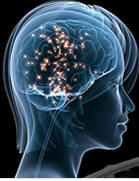 |
|
"The mission of the ARC is to understand the biomedical causes
of autism spectrum conditions, and develop new and validated methods for
assessment and intervention. The ARC fosters collaboration between
scientists in Cambridge University and outside, to accelerate this
mission.
The ARC is situated within the School of Clinical Medicine in the
Department of Psychiatry, at the University of Cambridge. It brings
together scientists working on autism from around the University of
Cambridge. It also has major collaborations with other universities, and
works closely with clinical and voluntary sector services. The ARC has
approximately 30 research scientists and support staff, drawn from a range
of disciplines (cognitive neuroscience, psychiatry, paediatrics,
neonatology, genetics, and biochemistry)." |
|
 |
|
Simon Baron-Cohen:
Empathy and the Science of Evil
Professor of Developmental Psychopathology and Director of the
Autism Research Centre at Cambridge University. |
|
|
|
|
Center for the
Advanced Study of Ape and Human Evolution
Emory University, Georgia |
|
 |
|
"The
primary mission of the Living Links Center is to study human evolution by
investigating our close genetic, anatomical, cognitive, and behavioral
similarities with great apes. The Living Links Center was established in
1997 for primate studies that shed light on human behavioral evolution. It
is an integrated part of the Yerkes National Primate Research Center,
which is the nation's oldest and largest primate center. "

Frans de Waal talks with Edwin about
the Nature of Empathy
Director Center for the Advanced Study
of Ape and Human Evolution |
|
|
|
|
Center for Empathy and Compassion
San Diego, California |
|
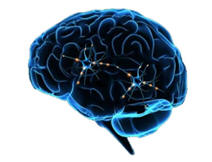 |
|
Established
in 2012, the Center for Science and Education of Empathy and Compassion (SEEC)
is a collaboration of scientists and lay members of the community who are
committed to understanding the brain's role in and developing ways to
increase empathy and compassion.
Vision
A scientific and lay community that understands the neural basis for
empathy and compassion and uses newly developed insights and tools to
create methods to enhance the ability of humans to practice these mental
states.
William Mobley
Co-Director |
| |
| |
Dalai
Lama Center
Vancouver, BC,
Canada |
|
 |
|
The Dalai Lama Center for Peace and Education educates the heart and
fosters compassion through creative learning, facilitating and applying
research, and connecting people and ideas. |
|
|
|
|
Empathy and Moral Psychology (EMP)
Lab
Penn State University
|
|
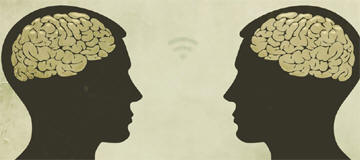 |
|
|
|
Welcome
to the Empathy and Moral Psychology (EMP) Lab at Penn State University,
directed by Daryl Cameron. We study the affective and motivational mechanisms
involved in empathy and moral decision-making. Our lab utilizes insights and
methodologies from affective science, social cognition, and moral philosophy. |
|
|
|
|
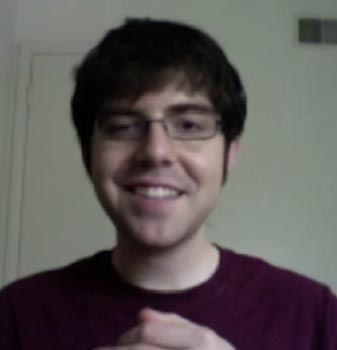 |
|
Daryl Cameron, Ph.D. |
Principal Investigator |
|
|
|
|
|
Empathy
and Relational Science Program
Massachusetts General Hospital, Boston, MA |
 |
|
"The mission of the Empathy and Relational Science
Program is to enhance empathy and interpersonal relationships in
healthcare. Empathy & Relational Science Program. We offer revolutionary,
evidence-based empathy training that optimizes the patient experience to
promote respectful, compassionate, and effective communication at all
levels of healthcare. Our training and consultations are grounded in the
neurobiology and physiology of human interaction and emotion and are
informed by relational sciences." |
|
 |
|
Helen Riess:
How to Build a Culture of Empathy in Health Care
Associate Clinical Professor of Psychiatry,
Harvard Medical School and Director of the Empathy and Relational Science
Program at Massachusetts General Hospital.
|
|
|
|
|
|
Empathy and Social
Connection Lab
University of Illinois at Chicago, Chicago, Illinois |
|
Our research
focuses on understanding this core human experience, examining how people
share the emotions of others (i.e., empathy) and respond when others
empathize with them (i.e., feeling understood).
|
|
|
|
|
 |
Director: Sylvia Morelli |
| |
|
Empathy for Peace |
|
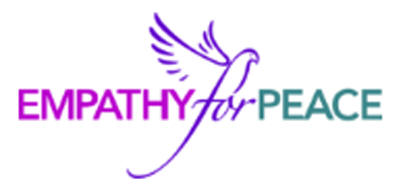 |
|
VISION
Empathy for Peace operates on the premise that the practice of empathy is
the foundation of fair, just and peaceful communities.
MISSION
The goal of Empathy for Peace is to advance empathy awareness through
empathy research and education with specific applications to
evidence-based conflict resolution, peace and reconciliation processes. |
| |
| |
|
Interdisciplinary Program
on Empathy and Altruism Research (iPEAR)
University of Michigan |
|
|
|
|
|
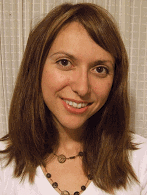 |
|
'Our research
focuses on extremes of empathy. Lower empathy: We have found that
narcissism is rising and empathy is declining among American college
students. Other work explores the cognitive an intrapersonal consequences
of narcissism, and methods of reducing narcissism and
egotistically-motivated aggression. We also seek to understand the
emotional processes associated with other empathy-relevant traits such as
self-construal and alexithymia. ..'
Principal Investigator: Sara
Konrath |
|
|
|
|
|
|
|
Institute
for Research on Unlimited Love |
|
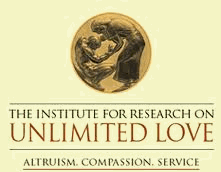 |
|
"Unlimited
Love means love for all humanity without exception. Participation in this
love inspires inner peace, abiding kindness and service. People of
"Unlimited Love" deeply affirm and serve all humanity without exception.
Participation in this love is the pinnacle of spirituality, inspiring
inner peace, abiding kindness and effective action in the world" |
|
|
|
|
|
Mind and life
Institute
Hadley, MA |
|

|
|
"To establish
mutually respectful working collaboration and research partnerships
between modern science and Buddhism - two of the world's most fruitful
traditions for understanding the nature of reality and promoting human
well-being. |
|
|
|
|
|
Mind with
Heart
UK |
|
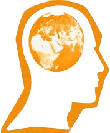 |
Mind with Heart is a charity dedicated to giving the space
to young people and their educators to investigate and experience empathy,
altruism and compassion. Mind with Heart is a UK-based charity founded in
2010 by a group of four educators. The network now includes over 30
members.
Join the network of educators
Professional educators internationally are invited to join the network.
|
|
|
 |
Vinciane Rycroft: How to Build a Culture of Empathy with
Education
Director and Co-Founder at Mind with Heart |
|
|
|
|
|
Poynter Center for the Study of
Ethics and American Institutions - Indiana University - Bloomington, IN |
|
 |
|
"Those questions and more are being explored by a
workshop on empathy at IU Bloomington, co-sponsored by the Poynter Center for
the Study of Ethics and American Institutions and the Institute for Advanced
Study. The workshop, which runs through the current academic year, brings
together 15 scholars from a range of disciplines to discuss their work on
empathy-related topics.
An
interdisciplinary team of Indiana University researchers from the
humanities, life sciences, information sciences, and social sciences has
received a $199,617 grant from the University of Chicago to study the virtue
of empathy.
- Search on Empathy
-
Team
|
|
|
|
|
|
Stanford Social Neuroscience
Laboratory
Stanford University,
Stanford,
California |
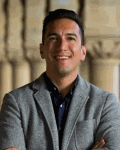 |
|
Researchers
at the Stanford Social Neuroscience Lab focus broadly on deconstructing
social cognition and interaction. Although often delving into new
territory, some of our main threads of research include:
Empathy, Social "Tuning" of Emotions, Prosocial Behavior,
Social Influence.
Lab Director: Jamil-Zaki |
|
|
|
|
|
Start Empathy |
|
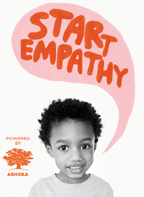 |
"Start Empathy, an initiative of Ashoka, is a
community of individuals and institutions dedicated to building a future
in which every child masters empathy. Empathy is the ability to understand
the feelings and perspectives of others, and to use that understanding to
guide one’s actions. It is critical both to individual human development
and to our collective ability to solve problems and build a stronger
society.
Start Empathy is not out to build a single program, curriculum, or
silver-bullet fix. Rather, we're working to unleash demand for empathy as
a core 21st century skill – collaborating with social entrepreneurs,
educators, parents, and key players in the media, business, and academic
sectors to make empathy as essential as reading and math in early
education. Success will take all of us, and will require rethinking how we
parent, educate, and raise our children in a world that is changing faster
than ever before. " |
| |
|
Ashoka.org
|
|
 |
|
"Ashoka's Empathy
Initiative: 'In this new world, empathy is one of the most important
skills. Every individual needs the skill of empathy to succeed.
'we aim to create a world committed and equipped to
ensuring that every child masters empathy.'"
Empathy.ashoka.org -
Start Empathy.org |
| |
|
Empathy
Lab UK |
|
|
|
EmpathyLab
is a small start-up, passionate about the creative power of words to build
empathy, and the power of empathy to make the world a better place.
Empathy skills are vital in helping children and young people tackle some
big challenges, at home and globally. |
Neuroscience Labs
|
|
|
|
|
Center for Culture,
Brain, and Development
UCLA |
|
 |
|
"The FPR-UCLA
Center for Culture, Brain, and Development (CBD) fosters training and
research at UCLA to explore how culture and social relations inform brain
development, how the brain organizes cultural and social development, and
how development gives rise to a cultural brain." |
|
|
|
|
|
Marco Iacoboni Lab: UCLA Brain Mapping
Center: A Systems Neuroscience LabUCLA |
|
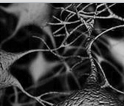 |
"Our
lab investigates human brain functions in health and disease using non
invasive techniques. We use Magnetic Resonance Imaging (MRI) to image
brain structure and functions. We also stimulate the brain painlessly and
modulate its activity with Transcranial Magnetic Stimulation (TMS) and
Transcranial Direct Current Stimulation (tDCS).
The lab comprises people with a wide range of backgrounds and with diverse
expertise. This is reflected in the eclectic range of research projects
performed in the lab and in collaboration with other, multidisciplinary
labs. Research areas include:
-
Motor control in health and disease
-
Social cognition in health and disease
-
Neuromodulation
-
Interdisciplinary projects"
|
|
|
 |
Marco
Iacoboni: Dialogs on How to Build a Culture of Empathy
Lab Director |
|
|
|
|
|
Max Planck Institute for Human Cognitive and Brain Sciences
Leipzig, Germany |
|
 |
|
"Research at the Max Planck
Institute for Human Cognitive and Brain Sciences revolves around human
cognitive abilities and cerebral processes, with a focus on the neural
basis of brain functions like language, emotions and human social
behaviour, music and action. Our studies look into the perception,
planning, and generation of these, and analyzes the interaction and common
functional bases of their production and perception."
|
|
|
|
|
|
The A-Z Lab
University of Southern California |
|
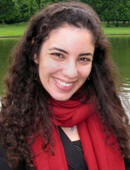 |
|
"Our current
research focuses on understanding properties of the mirror neuron system
and shared representations as it relates to stroke and neurorehabilitation,
contextual effects on empathy, embodied cognition, social communication,
language, and visual creativity.
Principal Investigator - Dr. Lisa Aziz-Zadeh is an assistant professor at
the University of Southern California, in the
Brain and Creativity
Institute, and in the
Department of Occupational Science. She studies social cognition from
a cognitive neuroscience perspective, using techniques including
functional Magnetic Resonance Imaging (fMRI) and Transcranial Magnetic
Stimulation (TMS)." |
|
|
|
|
|
Center for Mind and Brain (CMB)
University of California at Davis |
|
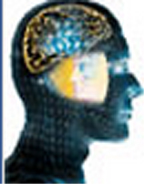 |
|
"Founded in
2002, the CMB is a research and training unit dedicated to understanding
the nature of the human mind from interdisciplinary perspectives." |
|
|
|
Bhismalab
University of Reading, UK |
|
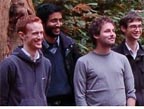 |
"Research in
our group focuses on emotions, empathy, and autism.
We use a range of techniques that include functional MRI,
psychophysiology, psychophysics, and eye-gaze tracking to address our
research questions. We are based at the Centre for Integrative
Neuroscience and Neurodynamics, within the School of Psychology and
Clinical Language Sciences, University of Reading.
Our group is part of the Berkshire Autism Research Network and the
research cluster on Psychopathology and Affective Neuroscience. We
collaborate closely with the Cambridge Autism Research Centre, and several
other groups within and outside the UK." |
|
|
 |
Bhismadev Chakrabarti:
How to Build a Culture of Empathy with Science
Heads
a research group at Centre for Integrative Neuroscienc
&
Neurodynamics |
|
|
|
|
|
|
|
Social Cognitive Neuroscience at Columbia University
|
|
 |
|
"The Social
Cognitive Neuroscience Lab is located in Columbia University's Department
of Psychology(MAP), which is located in the Morningside Heights Neighborhood of Manhattan’s Upper West Side
Director Kevin Ochsner, Ph.D." |
Sort
-
Center for Empathy in
International Affairs
ceia is the world’s first organisation to promote empathy in
international policy-making and practice. Our mission is to promote
understanding, awareness and the practice of empathy to inform
international policy-making, reduce conflict and strengthen responses
to human suffering.
-
Oxford
Empathetic Care Program
The Oxford Empathetic Care Program (OxCare) is an interdisciplinary
research group that includes medical practitioners, philosophers,
psychologists, and sociologists.
-
Others
|
|